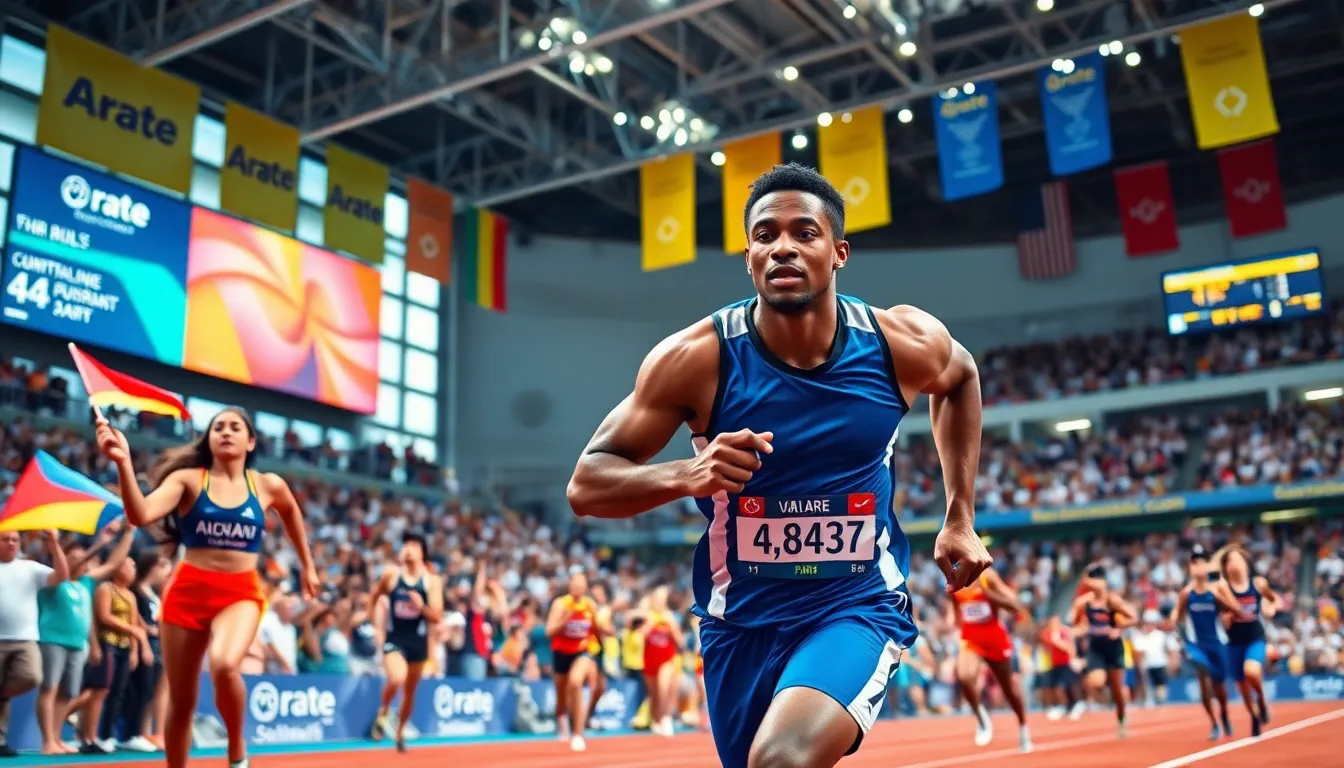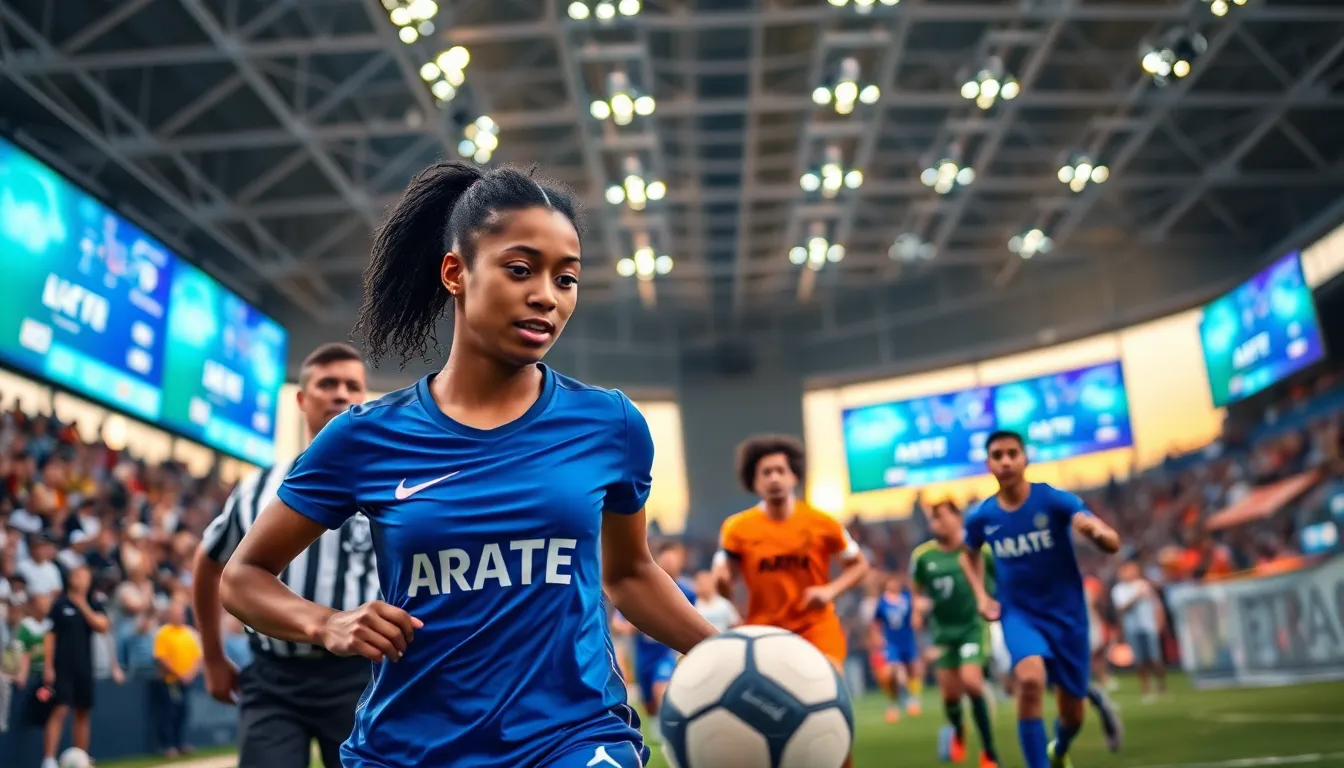In the fast-evolving world of sports, the introduction of innovative competition frameworks is crucial. The recent buzz surrounding the Arate Competitions and the transformative Plateau Deal is capturing attention across the industry. As organizations strive for excellence, understanding these developments is essential for competitors, sponsors, and fans alike. This article delves into the intricacies of the Plateau Deal, exploring its features, benefits, and future implications within the sports sector.
Table of Contents
ToggleOverview of Arate Competitions

Arate Competitions is gaining recognition as a dynamic platform for athletes and sports organizations, catering to multiple disciplines. Launched to elevate the standards of competitive events, Arate seeks to provide a comprehensive framework that fosters fair play, encourages innovation, and engages audiences. Over the years, it has attracted a diverse range of participants, from seasoned professionals to rising stars in various sports.
The platform is structured to accommodate various competition formats, including traditional tournaments, single-elimination contests, and innovative league formats. With safety and integrity at its core, Arate prioritizes not just the athletes’ performance but also their overall experience and welfare.
Recent Developments in the Sports Industry
The sports industry has been undergoing significant changes in recent years, propelled by technology, market globalization, and shifting fan expectations. New broadcasting deals, the rise of esports, and an increased focus on athlete wellness have transformed how competitions are organized and consumed.
Technological advancements such as augmented reality and data analytics have provided fans and teams with unprecedented access to performance metrics, enhancing the spectator experience and strategic decision-making. Also, partnerships between technology firms and sports organizations have led to the development of more interactive platforms, sparking increased interest and engagement from younger audiences.
Impact of the Plateau Deal on Competitions
The Plateau Deal represents a significant shift in how competitions are structured within the framework of Arate. This groundbreaking agreement is designed to optimize resource allocation and enhance the competitive landscape for participating organizations.
Key Features of the Plateau Deal
One of the standout features of the Plateau Deal is its commitment to sustainability and scalability. By providing financial incentives and funding opportunities, it aims to uplift smaller organizations and create a more level playing field in the sports ecosystem. Another aspect is the integration of technology in managing competitions, which streamlines processes and enhances transparency.
Benefits for Competitors and Organizations
For athletes, the Plateau Deal means improved access to resources, including training facilities, coaching, and medical support. These enhancements result in bolstered performance and safer competition environments. For organizations, the deal fosters collaboration. Increased sponsorship opportunities and shared marketing initiatives allow them to capitalize on their partnership with Arate, eventually increasing visibility and profitability.
Challenges and Considerations
Even though its numerous advantages, the Plateau Deal is not without challenges. Organizations may need to adapt to new operational protocols and standards, which can require a significant cultural shift. Also, ensuring equitable distribution of funds and resources among all participants is crucial to maintaining the integrity of competitions.
Future Implications for Arate Competitions
Looking ahead, the landscape of Arate Competitions will likely evolve further as stakeholders adapt to the changes brought about by the Plateau Deal. The emphasis on sustainability indicates a growing awareness of environmental concerns within the sports industry. Future competitions may incorporate green practices to minimize their ecological footprint and appeal to environmentally conscious fans.
Also, the success of the Plateau Deal may encourage other sectors to explore similar collaborative agreements. This could lead to a more unified approach across various sports, with organizations collectively facing the challenges and opportunities of a rapidly changing marketplace. As young athletes emerge, their engagement with digital platforms will also shape how future competitions are designed.
Conclusion
The buzz surrounding the Arate Competitions and the Plateau Deal highlights a pivotal moment in the sports industry. As competitions adapt to leverage innovation and collaboration, the focus on sustainability, equity, and athlete welfare is set to redefine how sports operate. The implications of these developments will resonate for years to come, influencing not only competitors but also the broader sports ecosystem. With the initiatives outlined in the Plateau Deal, a more engaged and empowered community of athletes and organizations is on the horizon, driving the future of competitive sports to unprecedented heights.





